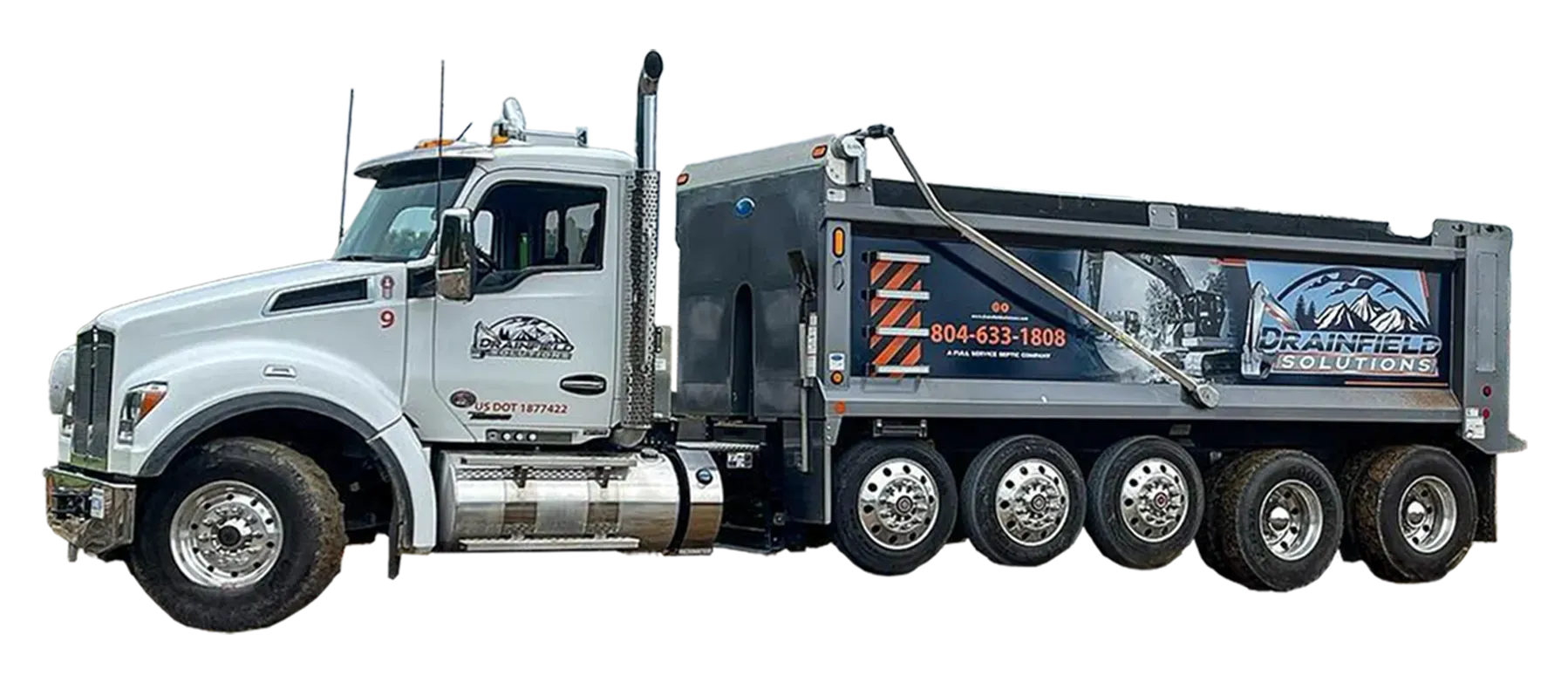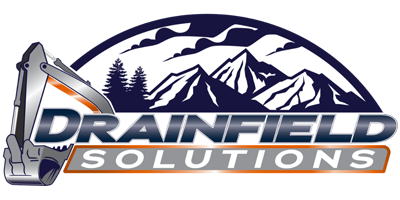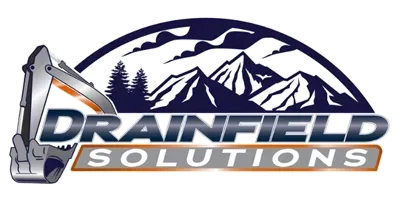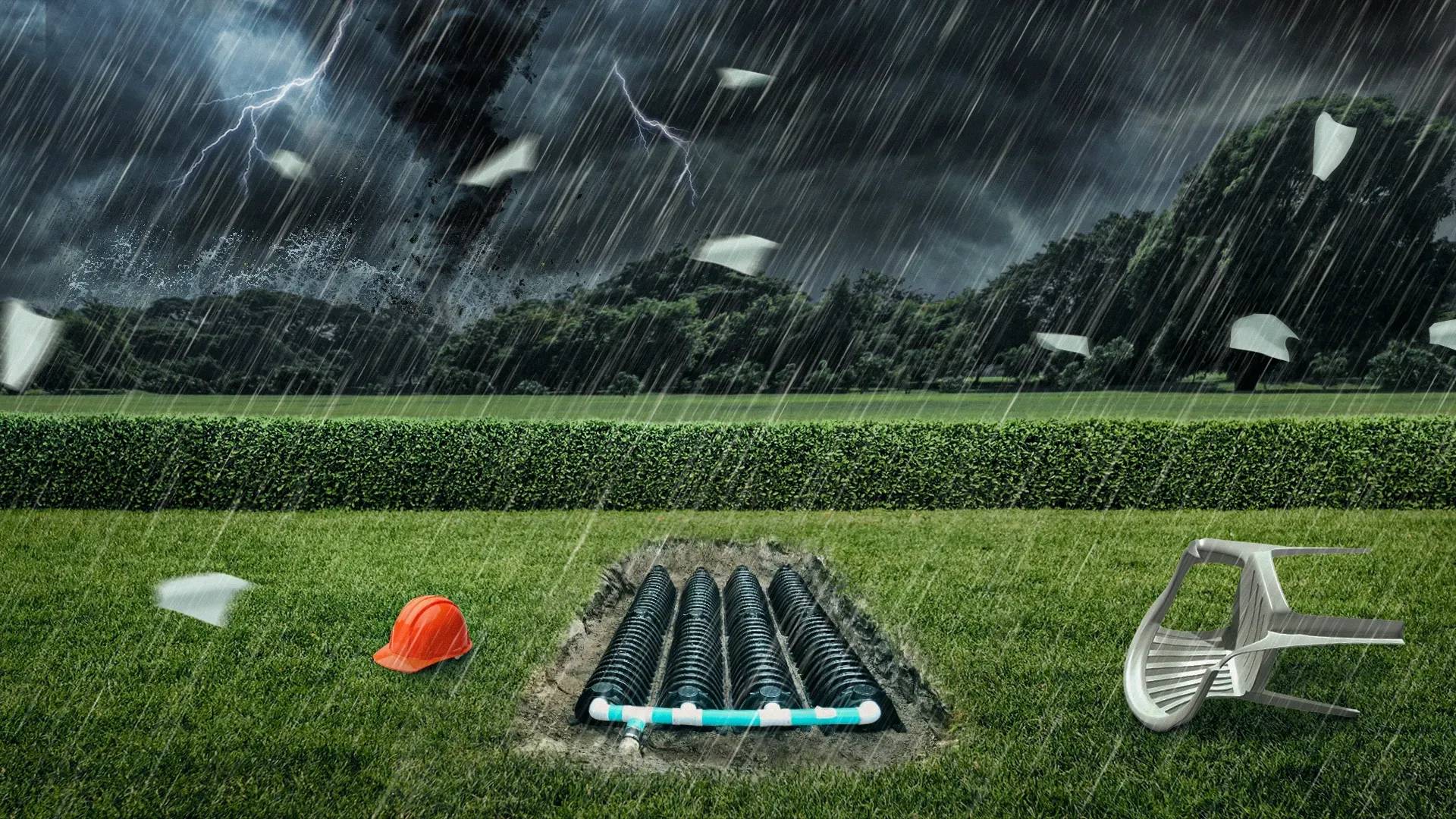
What Weather Does to Your Septic Drainfield (and How to Stop It)
November 16, 2024
When most people think about maintaining their septic system, they imagine regular pumping or avoiding harsh chemicals—rarely does the weather come to mind. But believe it or not, weather can make or break your drainfield. And since the drainfield is the final stage in your septic system’s treatment process, if it goes down, everything else can quickly follow.
From torrential rains and compacted summer soils to frozen ground in winter, weather extremes can severely limit how well your soil can absorb and filter wastewater. That means potential backups, health hazards, and costly repairs. It can also mean harmful waste surfacing into your yard or leaching into groundwater.
So—can a drainfield freeze? Yes. But that’s just one of many things that can go wrong depending on the forecast. In this blog, we’ll cover:
- What happens when your septic system faces heavy rain
- Why drought and soil compaction are sneakier than they seem
- How to prevent a frozen drainfield in winter
- The impact of extreme heat on microbial health and system efficiency
- Practical ways to protect your system in every season
👉Let’s start with one of the most common culprits of septic issues: heavy rainfall.
💧Heavy Rain and Your Drainfield: The Perfect Storm
If you’ve noticed standing water near your septic system after a storm, don’t ignore it. Heavy rain is one of the leading environmental threats to the health of your drainfield—and it doesn’t take a hurricane to cause trouble.
Why It’s a Problem:
A drainfield relies on dry soil to absorb and treat wastewater. When that soil becomes oversaturated with rainwater, there’s nowhere left for the septic effluent to go. Instead of being naturally filtered through the ground, wastewater can rise to the surface, causing:
- Soggy patches or puddles in your yard
- Foul odors from untreated sewage
- Slow drains or toilet backups inside your home
- Contaminated runoff that threatens local groundwater or nearby wells
⚠️It’s not just an inconvenience—it's a public health risk and a clear sign that your system is overloaded.
How It Happens:
Let’s say it rains heavily for two or three days. The topsoil in your drainfield becomes saturated and dense. At this point:
- Water from your household—dishwashing, showers, laundry—is still entering the septic tank
- That wastewater travels to the drainfield as usual, but the soil can't absorb it
- The effluent begins to pool on the surface or back up into your pipes
- Microbial action decreases, since excess water starves the soil of oxygen—crucial for breaking down harmful contaminants
🌧️And just like that, a heavy rainstorm becomes a full-blown septic emergency.
💧How to Protect Your Drainfield from Heavy Rain Damage
Rain is inevitable, but damage doesn’t have to be. With a few proactive measures, you can help your drainfield weather the storm—literally.
1. Improve Site Drainage Around the Drainfield
Don’t let your roof and gutters turn your septic area into a swamp. Make sure:
- Downspouts and gutters are directed away from the drainfield
- Any slope or landscaping near the area helps channel water elsewhere
- You avoid any surface runoff from driveways or nearby buildings pooling on the field
💡The Environmental Protection Agency (EPA) recommends keeping all excess surface water away from the septic system area to prevent overloading and damage.
2. Conserve Water During Storms
When the soils already waterlogged, every extra gallon you send into the septic system adds stress.
During or right after a heavy rain event:
- Avoid running washing machines or dishwashers
- Postpone long showers or baths
- Fix leaks ASAP—every dripping faucet adds up
💡It may sound small, but even a little conservation helps buy time for the soil to drain naturally. 🔗The National Onsite Wastewater Recycling Association (NOWRA) emphasizes water conservation as a key part of protecting septic systems during wet weather.
3. Schedule Regular Septic Inspections
Routine inspections can detect early signs of saturation, ponding, or field damage before they become household disasters. A qualified technician can:
- Check the sludge levels in your tank
- Ensure effluent is being evenly distributed
- Look for any signs of blockage or backflow
💡Think of it like a weatherproofing checkup for your entire system. 🔗Michigan State University Extension offers helpful tips on inspection intervals and seasonal care.
🌵Drought & Soil Compaction: When Dry Conditions Cause Big Trouble
If you think dry weather is septic-friendly, think again. While heavy rains are messy, drought can be just as damaging, especially when it causes the soil in your drainfield to harden and compact. Compacted soil becomes dense, airtight, and resistant to water flow—essentially suffocating the bacteria that help your system treat waste.
What Happens During Drought or Extended Dry Spells
During dry spells, several things can quietly go wrong:
- Soil shrinks and hardens, reducing the space between particles
- Oxygen levels in the soil drop, weakening microbial life
- Wastewater has a harder time moving through the compacted soil
- You may notice slower drainage, odors, or even gurgling sounds in your pipes
You might not even realize there’s a problem until a light rain comes, and your drainfield floods faster than expected—because the soil has lost its natural filtration structure.
💡The University of Minnesota Onsite Sewage Treatment Program discusses how drought and weather extremes affect soil health in septic systems and how homeowners can prepare.
🛡️How to Prevent Drainfield Damage During Drought or Extreme Heat
Just because the sun’s out doesn’t mean you’re in the clear. Dry, compacted soil can quietly choke the life out of your septic system.
1. Water Your Drainfield—But Do It Wisely
When soil becomes too dry, it shrinks and tightens—just like a sponge that’s been left out too long. To prevent this:
- Lightly water the drainfield during drought to keep the soil slightly moist.
- Never saturate the area—you’re aiming for damp, not soggy.
- Use sprinklers set on a timer to avoid overwatering.
💡The Oregon Department of Environmental Quality (DEQ) recommends periodic watering in dry seasons to maintain the biological health of the drainfield soil.
2. Keep Heavy Equipment Off the Drainfield
Dry soil is more prone to compaction, especially under pressure. That means:
- No parking vehicles or storing heavy items on or near the drainfield
- Avoid mowing with heavy riding mowers during dry months
- Fence off or mark the area to keep foot traffic low
💡Compaction can destroy pore space in the soil, limiting oxygen and making it harder for wastewater to filter. Purdue University Extension emphasizes that compacted soil leads to “slow percolation” and often masks underlying drainfield failure.
3. Inspect the System During Prolonged Heat
Heat waves aren't just hard on your lawn—they’re hard on your septic system too. During long periods of extreme heat:
- Get your septic system inspected for any slow-drain or compaction signs
- Check for unusual odors, puddles, or slow drains inside your home
- Use water mindfully—even small overuses during hot spells can overwhelm a stressed system
❄️Can a Leach Field Freeze? Absolutely—and Here's Why It Matters
When temperatures plummet, your drainfield is at risk of turning into a frozen slab of wastewater stagnation.
🔍 What Happens When the Ground Freezes
- Soil locks up and stops absorbing wastewater
- Effluent backs up into the septic tank or home because it has nowhere to go
- Pipes can freeze or crack, especially if the septic system is shallow or not properly insulated
- You may smell sewer gas indoors, or hear gurgling from drains as pressure builds up
And it doesn’t take much—a thin layer of frozen soil near the surface can block wastewater percolation for weeks.
💡The Minnesota Pollution Control Agency (MPCA) notes that shallow systems, compacted snow, and a lack of insulating vegetation all increase the risk of freeze-ups.
🛡️ How to Protect Your Drainfield from Freezing
Winter isn’t just a challenge for your heating bill—it can seriously disrupt your septic system. Here’s how to prevent your leach field from turning into a frozen disaster zone:
1. Insulate with Mulch or Straw
Before the first hard freeze, cover your drain field with 8 to 12 inches of mulch, straw, or leaves to create natural insulation. Focus on areas:
- Directly over the pipes
- Around shallow system components
- Near the tank outlet and distribution box
💡This layer traps ground heat and slows the penetration of freezing temperatures. 🔗The University of Minnesota Extension strongly recommends mulch as a cost-effective defense against freeze-ups.
2. Keep Snow Fluffy, Not Packed
Contrary to instinct, don’t plow or shovel snow off your drainfield. Instead:
- Let snow accumulate naturally—it acts as insulation
- Avoid walking or driving on the area, which compresses the snow and worsens freezing
- Redirect traffic (even foot traffic) away from the field during winter
💡The EPA’s SepticSmart program warns that compacted snow allows frost to reach your drainfield more easily, increasing the risk of frozen pipes and blocked systems.
3. Reduce Water Usage During Deep Freezes
Pushing large amounts of water into the system during freezing weather can cause backups if the field is partially frozen. To minimize risk:
- Avoid laundry marathons—spread out water-heavy tasks
- Keep showers short and spaced throughout the day
- Fix any leaky toilets or faucets immediately
☀️ Can Extreme Heat Damage a Drainfield?
Absolutely—and the effects mimic drought but come on faster and hit harder.
How It Happens
- High temperatures dry out soil, reducing permeability
- Microbial activity declines as soil dries and temperatures rise
- Evaporation increases, leaving behind salts and solids in the drainfield soil
👉This leads to slow drainage, system strain, and increased odor.
What You Can Do
- Lightly water your drainfield early in the morning—enough to keep it damp, not soggy
- Provide shade using shallow-rooted plants like native grasses or clover
- Never cover your drainfield with impermeable materials (plastic, concrete, etc.) that trap heat and block evaporation
💡The National Onsite Wastewater Recycling Association (NOWRA) emphasizes proper landscaping and heat-conscious design to improve septic system longevity.
👷 Need Help Protecting Your Septic System?
At Drainfield Solutions, we understand just how critical it is to keep your septic system healthy through all seasons. Our team offers:
- Routine maintenance and pumping
- Seasonal inspections tailored to your weather conditions
- Emergency support when weather throws your system a curveball
Visit our 🔗Contact Page or give us a call at 📞804-633-1808 to schedule a service or consultation. We’re proud to serve homeowners throughout Central Virginia—including Tappahannock, Warsaw, Aylett, and Culpeper—with top-tier septic care.
Let us help you weatherproof your peace of mind.
Frequently Asked Questions
Share Post
Latest Posts
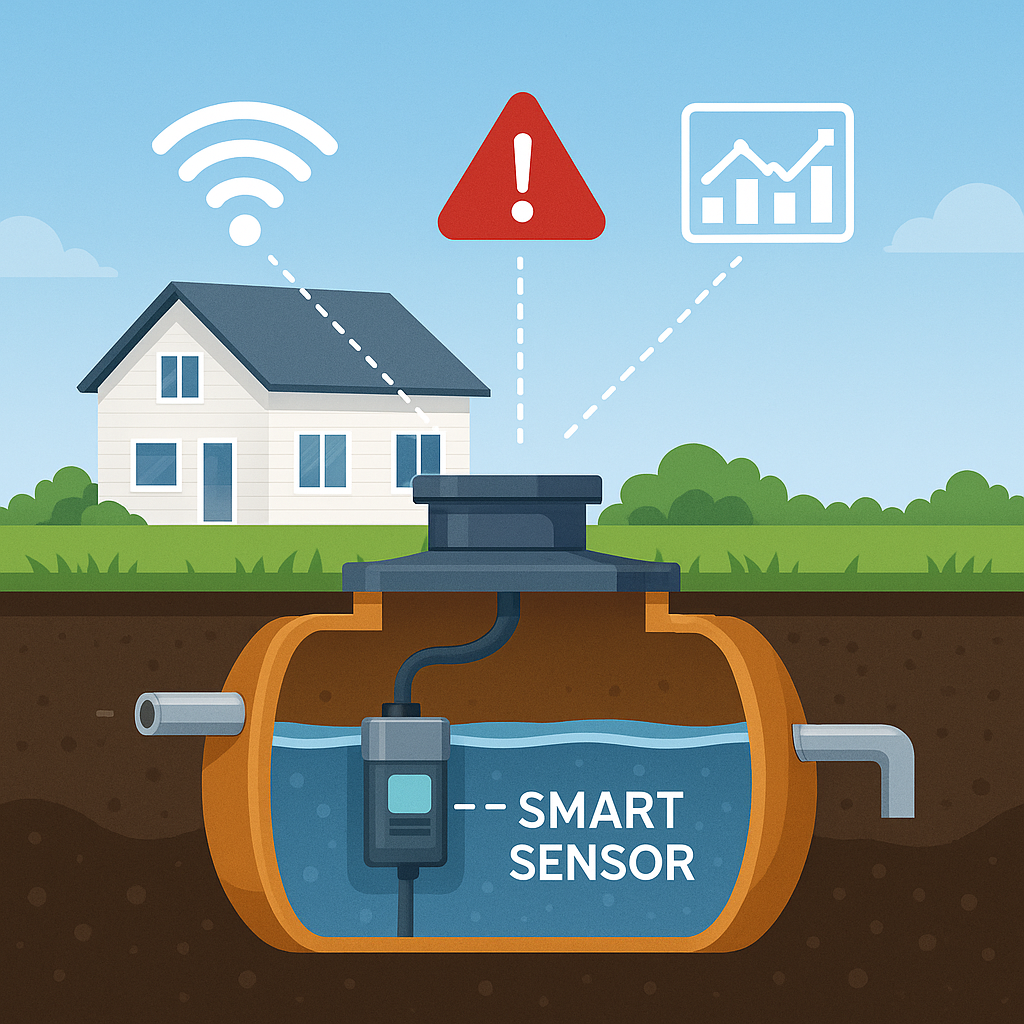
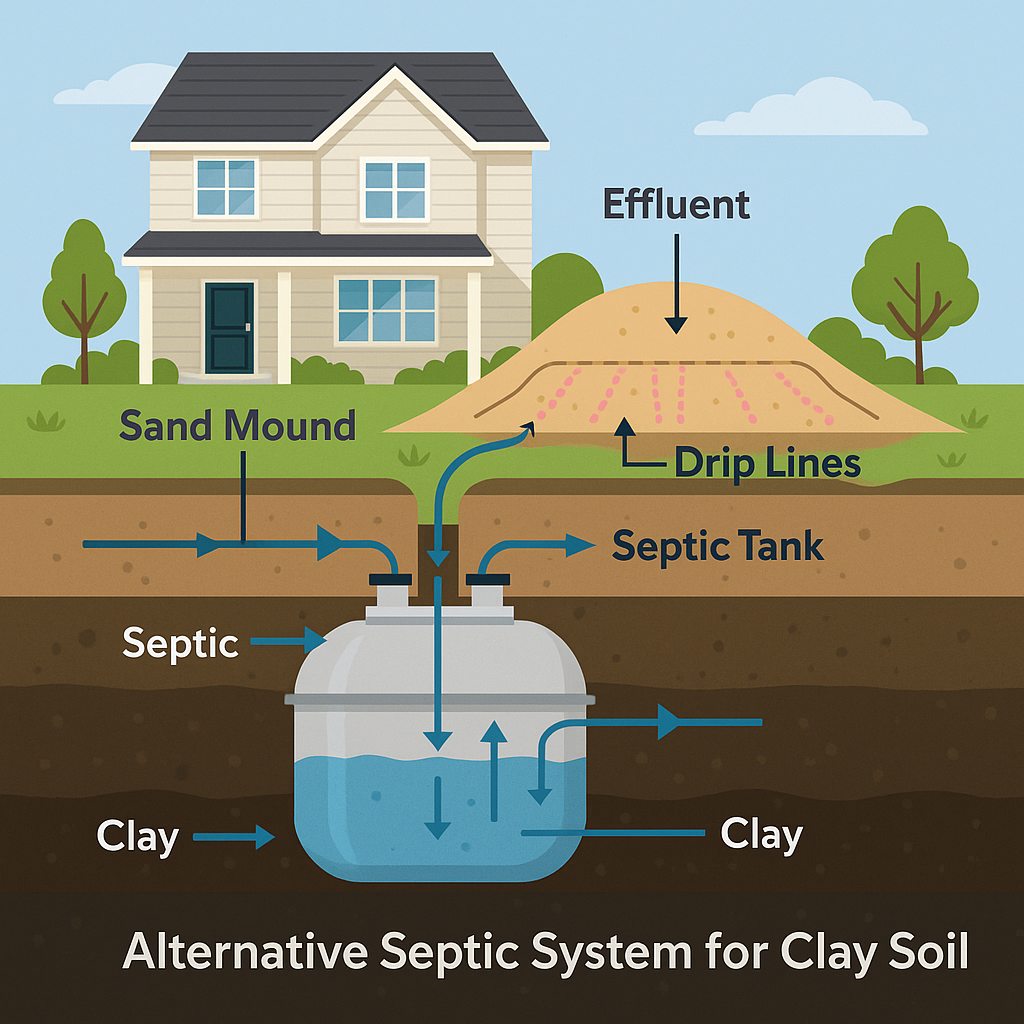
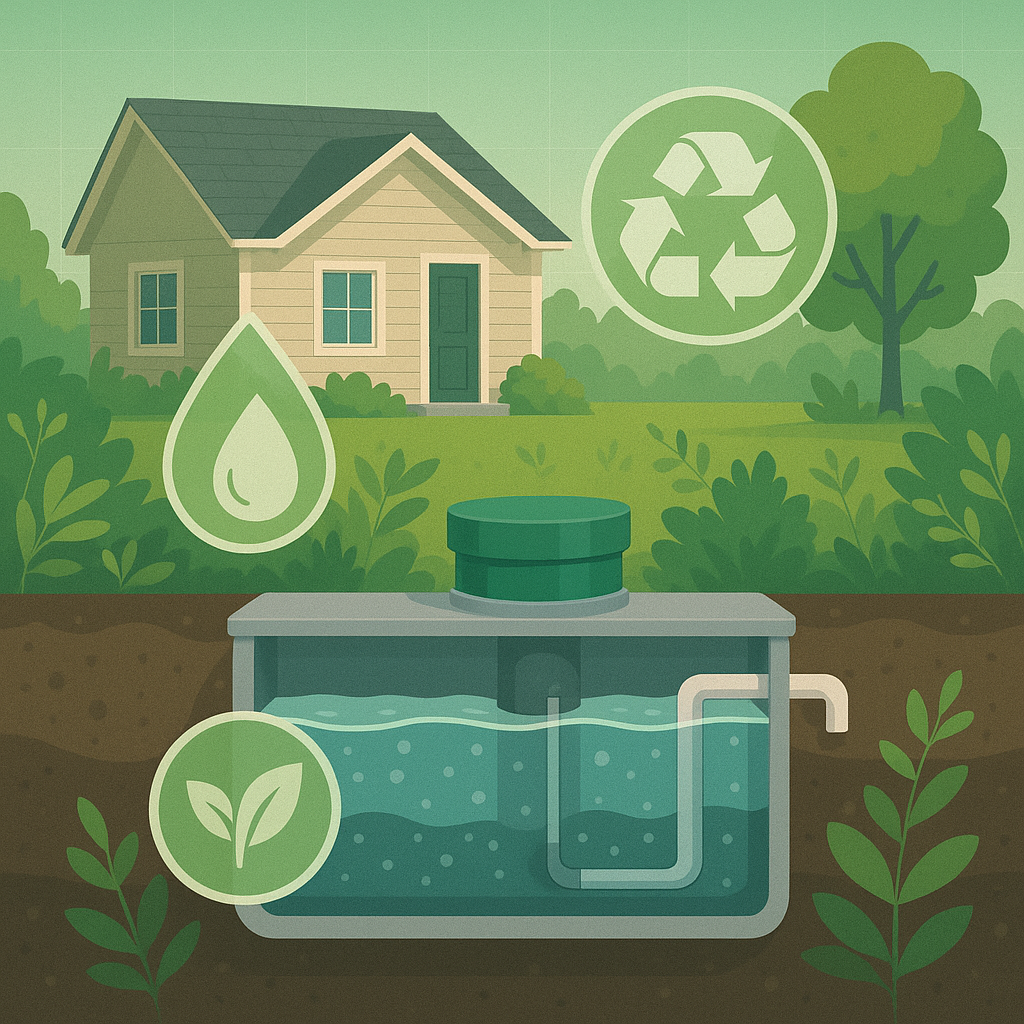
Ready to Take the Next Step?
Whether you're in need of a system inspection or regular maintenance, Drainfield Solutions is here to help. Get in touch today for reliable service you can trust.
